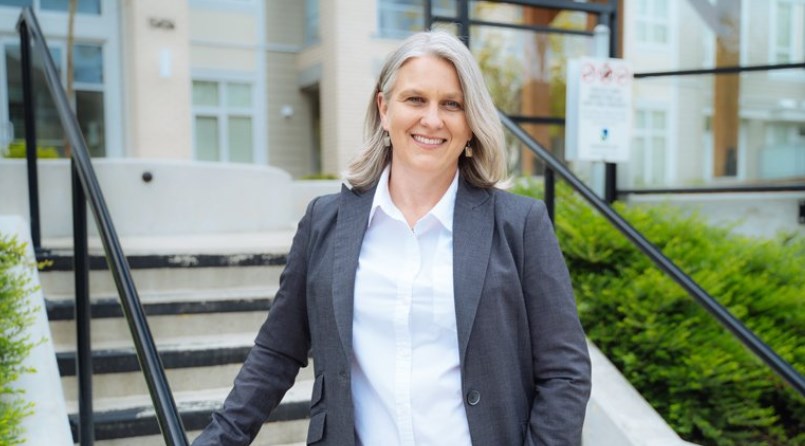When MLA Elenore Sturko first raised concerns eight months ago that some of B.C.’s safe supply drugs were being diverted for resale onto the street, the New Democrat government was having none of it.
Premier David Eby accused the Opposition BC United of flip-flopping on its support for safe supply, merely by raising the examples from media outlets that had found prescription dilaudid, still wrapped in government-issued pill packages, being sold on the street as ‘dillies.’
“Diverted safe supply pills that used to sell for $10 a pill are now being sold for as low as 25 cents a pill around VGH and downtown because of this government’s flooding of the market,” Sturko said in the legislature on May 10, 2023.
“Unsurprisingly, doctors are reporting a disturbing rise in the number of youths with new onset opioid use disorder and an increasing number of youth overdoses in hospitals involving hydromorphone.”
To New Democrats the criticism was a betrayal of an all-party committee in late 2022 that backed prescription safe supply.
“The members on the other side want to have it both ways,” said Eby. “I don’t know where they stand on this issue.”
Fast forward to last week, and a new report by Provincial Health Officer Dr. Bonnie Henry confirmed not only is diversion occurring, but some front-line health workers have for some time now had profound concerns about resold safe supply increasing addictions amongst youth.
“Diversion of hydromorphone is reported by (prescribed safer supply) program staff and clients as a common occurrence, likely due to the undesirability of this medication among people with high opioid tolerance,” read the report.
Health-care workers reported “moral distress” around the issue of prescribed, pharmaceutical-grade government drugs being resold on the street, according to the study.
“Anecdotal reports have suggested that youth may increasingly be accessing diverted hydromorphone; however, current BC data does not indicate an increase in OUD [opioid use disorder] diagnoses among youth.”
For Sturko, it was a validation of eight months of concerns she’d heard first-hand from the medical community. Yet every time she raised them the NDP accused her of fear-mongering or flip-flopping on supporting medical recovery options for vulnerable drug users.
“I feel a sense of vindication because when I first brought that forward, I was taking a tremendous risk and being accused by this government as spreading misinformation,” she said in an interview.
Sturko slammed the government for not doing more research into diversion over the last year, instead fighting against the idea it was even happening.
That’s left health professionals to conclude in Dr. Henry’s report that “no research is currently available on reasons for accessing diverted prescribed safer supply” and “the impact of using diverted prescription opioids on people at current risk of unregulated drug poisoning remains unclear.”
There’s also little data on new youth addiction caused by safe supply, because the primary data collection for youth is limited to an early pre-publication analysis of one at-risk youth study, and it fails to look upstream to see if the addiction started with diverted government drugs.
A lack of data should not be acceptable on a sensitive issue of public debate like this, after a year of the worst toxic drug deaths in B.C.’s history, said Sturko.
“We need an independent investigation,” she said, calling for some sort of outside agency to begin to accurately gauge B.C.’s progress and problems on safe supply.
BC United is also calling on the government to make all safe supply consumption witnessed, so that people cannot take the dilaudid out of the health-care setting and resell it on the street.
Dr. Henry has said that’s not realistic, because some people use safe supply to function in their everyday lives, such as getting to work and visiting family, and can’t go back multiple times a day to have their drug use supervised in person.
For that reason, the Dr. Henry report concluded that “diversion is not in itself good or bad or right or wrong.”
But that conclusion has very little support among any politicians, at this point.
It does not match with premier Eby’s insistence that safe supply require a prescription, because even government-provided drugs can be toxic without medical supervision.
“When the drugs go to the non-intended user, that is not a positive thing, that is negative,” said Sturko,
“A doctor was making a prescription with the intent for someone to take that medication. Because if they aren’t prescribing with the intent for that person to take it, are they just giving out medication for people to sell?”
It’s hard to imagine the government, so dug into this file, and having spent almost a year pretending these diversion problems didn’t exist, is up to the task of gathering objective new data to gauge just how bad the issue is. And even if it could, at this point, would anyone believe it?
Sturko may have a point: Time for an outside agency to take a dispassionate look at the safe supply problems in B.C.
Rob Shaw has spent more than 15 years covering B.C. politics, now reporting for CHEK News and writing for Glacier Media. He is the co-author of the national bestselling book A Matter of Confidence, host of the weekly podcast Political Capital, and a regular guest on CBC Radio.




